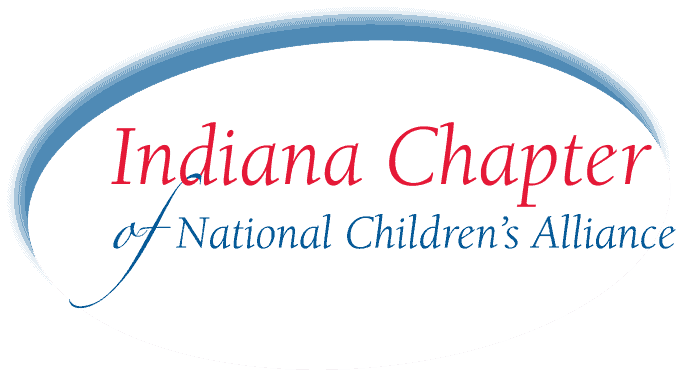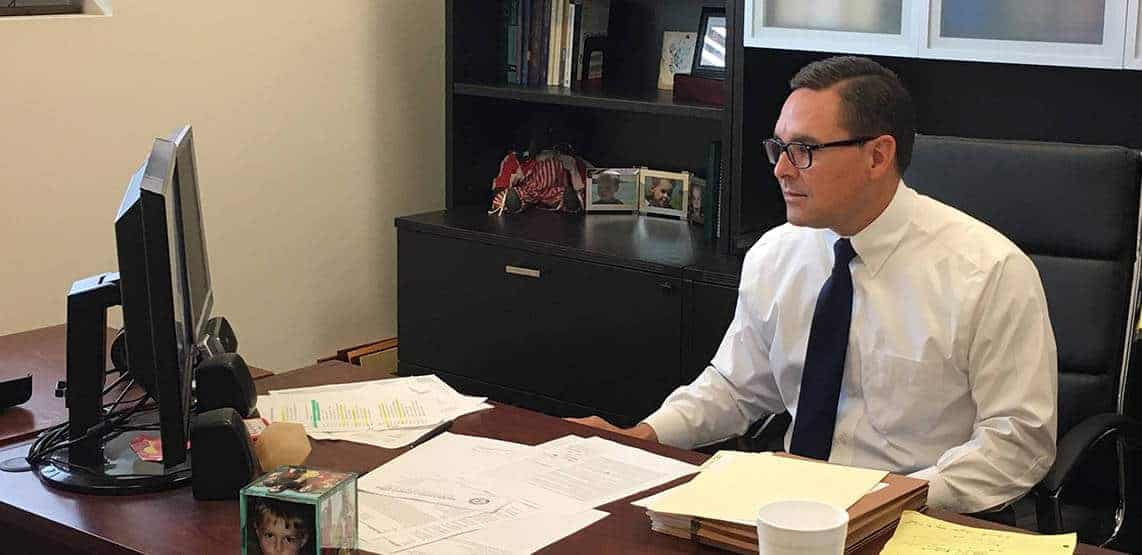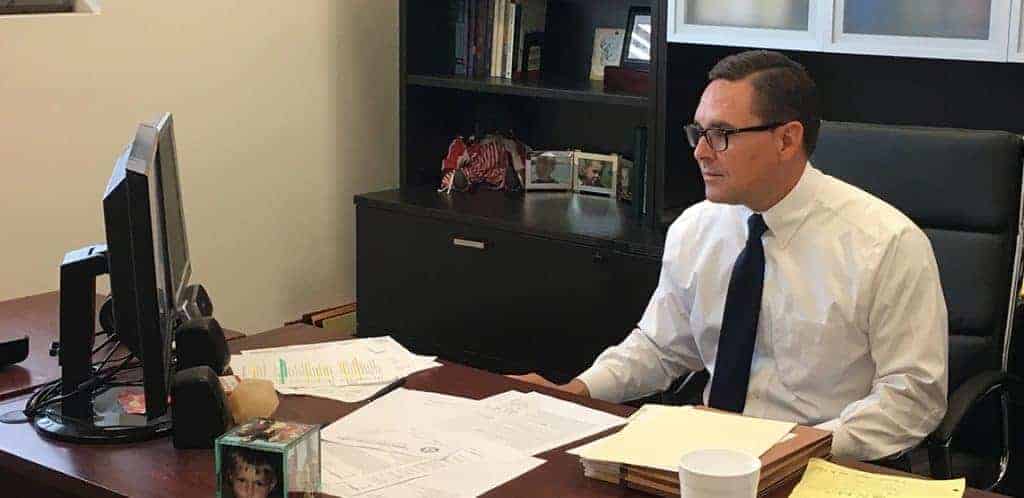Indiana’s cultural and geographic distances are as wide and vast as the state itself. A lot of attention is placed on urban and rural communities for the challenges they face in a variety of quality-of-life issues and perhaps deservedly so. Suburban communities, however, face a different set of challenges that don’t get as much attention because a perceived lack of need. Just ask Todd Meyer, the Prosecutor for Boone County, just northwest of Indianapolis.
“Boone County is an interesting study, where we have Zionsville and it’s a very progressive and wealthy community, and on the exact opposite side of the county is a very rural and agricultural-based side, and then there’s Lebanon [the county seat] which is a cross-section of almost everything,” says Meyer.
In June 2016, Boone County was thrust into the national spotlight with the raid and subsequent arrest of former Subway pitchman Jared Fogle at his Zionsville home. Fogle’s story of creating and disseminating child pornography, engaging in underage sex with minors, and paying for prostitutes of all ages is well known. Fogle’s charitable foundation director, Russel Taylor, was also arrested for child pornography and prostitution a few weeks later in July 2016.
As a boy who was raised in Lebanon, went to Lebanon High, and graduated from law school at Indiana University, Meyer was appointed to replace the prior Prosecutor, John Buchanan, who died while in office. Meyer was first elected to the position of Prosecutor in 2002. Now in his fourth term, he says, “This position was the sort of thing I was always drawn toward. I knew I wanted to be in law thanks to an uncle who was a successful attorney in his own right. I was drawn to this line of work by my relationship with him.”
Over the last 14 years, Meyer has seen “The cases like Fogle’s, and I see the incest cases that are common in smaller communities. Those cases have their own dynamics and they’re complicated in different ways,” says Meyer.
“Cases like Fogle’s from a criminal prosecution standpoint, as far as the evidence would show, he had not committed any crimes against children in the state of Indiana. The investigation reveals that most crimes happened elsewhere and internationally. Fogle was federally prosecuted here in Indiana for the possession and dissemination of child pornography,” says Meyer.
It’s in the context of a global campaign of child sex abuse that the complimentary laws of state and federal statutes worked as intended. Meyer adds, “This just highlights the most complicated elements of a child abuse case, particularly sex abuse. You’ve got your well-to-do philanthropist sitting across from you in a courtroom in a suit and tie and he’s not a dirty old man in a trench coat stereotype. Which is far from the truth. It’s very often the people you least expect, because they’re making it look that way.”
Meyer also sees wealthy families that go through intense divorces with high financial stakes. “So often in these cases the children are being used as pawns in games parents are playing with each other. For instance, a divorce with child custody case where suddenly an abuse allegation comes out of nowhere and mom is coaching the kids to say things that aren’t actually happening. Getting to the bottom of things and having the truth rise to the surface is done more completely through a Child Advocacy Center (CAC).”
Boone County’s CAC became operational after Meyer joined the Indiana Prosecuting Attorney’s Council. “Through my service I became more aware of larger communities that had CACs in place.” Hearing their advocacy, Boone County started requesting help from neighboring counties with CACs on select cases and later began work on their own.
Through the help of local advocacy and The Indiana Chapter of the National Children’s Alliance, Boone County’s CAC opened its doors and today Meyer is proud that Boone County is now able to assist their neighbors.
A report from the Department of Justice suggests communities with CACs may see no more or fewer convictions than a community without a CAC, but Prosecutors may seek longer sentences in ones that do. To which Meyer replies, “Perhaps,” adding, “The key is that CACs are not put in place to solidify or increase a prosecutor’s conviction rate. That’s not their mission or purpose. But I certainly can say that the children and families in communities with CACs are much better off.”
Meyer has no doubt that his prosecution is strengthened by the presence of a CAC and the multi-disciplinary team (MDT) that works the cases. “It’s not being done in a bubble”, he says. It’s this strengthening that gives Meyer something to take to juries in a community where the person sitting across from them is that local philanthropist or respected figure. “Child abuse, given the dynamics, like a 13-year-old female child who has made an allegation, months after an event, only at a time when they feel comfortable, we have no physical evidence to support the claim. The “he said” is often an upstanding member of our community, the last person people would think would do something that a child is alleging.”
Meyer continues, “We have a coach right now who has the opportunity to be around young female girls. He has established relationships with families and has the opportunity to act out on his sexual desires in a setting where there’s a lot of opportunity with kids because we have gymnastics or ice skating or places that may not exist in other communities. Those cases prove to be very complicated. The community at large hears about it and they’re shocked and they don’t want to believe the coach they’ve known for 14 years could be responsible for what’s being said is done.”
It was the presence of a CAC in Boone County that helped Meyer prosecute, and a jury to convict, a 25-year-old man who assaulted an 8-year-old child. The man, Meyer believes, coached the child to say “I did this to myself” to doctors at St. Vincent’s Hospital, which doctors immediately didn’t believe. The boy was interviewed by a CAC the next day, made a disclosure, and Meyer, “…played the video to the jury and he was able to go on and go to school and be a kid. The jury convicted, but without the CAC the case may not have turned out.”
Meyer also notes that a CAC’s presence increases reports of abuse. “…it happened here, reports of child abuse increase when the CAC becomes known to the community. People that work in the field, schools in particular, know about it and families, too, are more inclined to report back.”
Through Boone County’s CAC, Meyer’s Prosecutor’s office, and a host of other MDT resources, a community is coming together in the wake of a case like Jared Fogle’s and acknowledging the hard truths about the realities of any community. “This work is really rewarding and has its moments, but most of the time I go home feeling good about what we’ve done for the day,” says Meyer.


